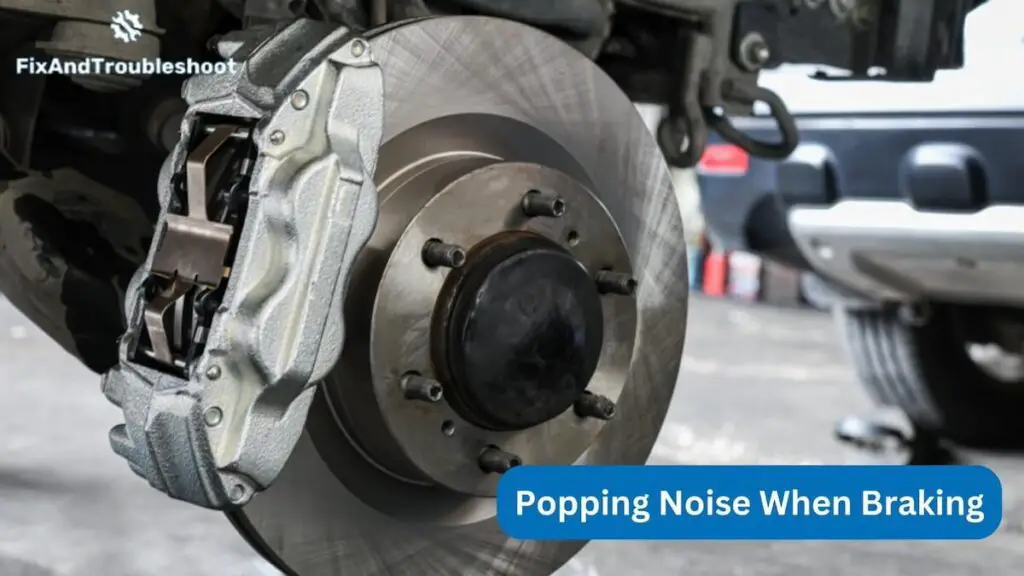The popping noise you hear when you apply the brakes can be unsettling. Your brakes may pop at red lights, when braking at low speed, or in extreme cases, every time you apply them, making your driving experience uncomfortable.
I’ll be explaining the causes behind this popping noise when braking and how you can fix it.

Disc Rubbing Against Brake Pads
A popping or clicking noise when braking might occur due to the disc touching the brake pads. Loose wheel bolts or other rattling parts inside the disc could be the cause.
Foreign Objects Caught in the Brakes
A popping sound when braking could be a result of a foreign object present in your brake pad.
Foreign objects in your brakes can rub together, causing friction and noise. Check for plastic, rubber pieces, or twigs that may have stuck under your brakes from your tires.
The noise occurs when the object rubs the brake pads and rotor, causing friction and noise
Improperly Adjusted Brakes
The pads should be parallel to the rotor, and they need to be even with each other.
If you see them leaning in one direction or the other, that means they’re not aligned.
A simple check is to see how much of the pad touches the rotor. If it’s over half an inch, the pad might not be positioned well in its bracket.
Contaminated Brake Fluid
Popping noises when braking could be due to contaminated brake fluid. Brake fluid can absorb water and cause brake pad issues, resulting in a popping noise
The same can happen if your car got wet in humidity and you changed brake parts recently. In situations like this, you’d need to bleed your brakes.
Loose or Worn-out Brake Pads
Brake pads, being soft, wear out over time, and when they do, they can shift and touch the rotor. This causes an unpleasant sound. Sometimes, a popping noise.
If you suspect this might be the problem, there’s good news: brake pads are easy to replace yourself.
Sticking Brake Caliper
If you hear a popping noise when you press the brakes, it could be that the caliper is sticking. The brake caliper houses the brake pads and presses them against rotors.
As you press on your brake pedal, this causes friction between the rotor and rubber pad.
Issues like dirt or rust in the calipers can make them stick or rub when you press the pedal. This creates a bad noise and can harm other brake parts if not fixed.
Conclusion
If you hear a popping noise when braking, it’s important to get your brakes checked by a professional.
The noise may be from foreign objects in the brake fluid. It could be because of brake changes, a stuck part, loose or old brake pads, parts touching, or dirty brake fluid. You need to address these immediately to prevent potential accidents.
